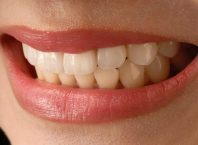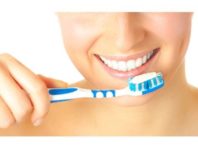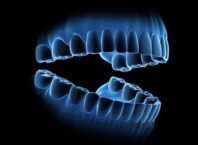Table of Contents
Enamel is the outer layer of your tooth. This toughest tissue protects your tooth from physical and chemical damage. It can be harder than your bones. However, not all people are lucky enough to have it as strong as it should be. When you chew food, it breaks down in many chemicals, including sugar, one of the significant causes to cause erosion.
Your teeth can be prone to wear and tear if it goes thin and gets destroyed. This mechanism acts like a shield that keeps you from sensitivity and stains. You cannot restore enamel once it is worn out, but you can protect it with proper dental care.
Enamel is translucent, which means it does not give colour to your teeth. Dentin is generally responsible for it. Sometimes edible items like teas, coffee, cola, juice and cigarettes stain the enamel on your teeth. A regular visit to a dentist can keep you from oral problems.

What happens when enamel becomes thin or destroyed?
Enamel is a hard outer layer of your teeth. It insulates it from painful temperatures and chemicals. Remember that it has no living cell, so you cannot restore it once it is chipped.
When you lose this hard layer, a thin line may appear on the surface of your teeth. It would seem like a cracked or chipped tooth. The discoloration is also one of the symptoms. You will become prone to cold and hot temperatures followed by severe sensitivity. You will face these symptoms in cold weather on and off.
However, if your enamel is weak, you can strengthen it with a remineralization process. It replaces lost minerals to reduce symptoms. You will have to give extra care to your tooth throughout life.
What causes enamel deterioration?
The following are the causes of enamel erosion.
- Excessive consumption of soft drinks
- High consumption of alkaline food
- Genetics (your tooth is naturally weak)
- Bacterial reactions (Your teeth are not aligned, making it difficult to maintain oral hygiene)
- High sugary and starchy diet
- Gastrointestinal problems
- Friction, wear and tear, stress and corrosion
Apart from the causes mentioned above, abrasion and erosion are two common culprits for wearing out the outer layer of your teeth.
Abrasion is a condition when something rubs against your teeth, for instance, toothbrushes, toothpicks, and hard food. Erosion occurs when your tooth exposes to dietary acids from particular food and drinks or when stomach acid is regurgitated. A bacterium released by plaque that abounds in your gum line also erodes your enamel.
How to Prevent from Enamel Loss
Tooth enamel loss increases the risk of tooth decay. Though you cannot restore them, you can protect it with effective dental care. Tooth enamel is the first defence mechanism that you need, so make that you do not take your oral hygiene lightly. Here is how your medical practitioner can keep it at bay.
Use of a super soft toothbrush
Your toothbrush selection plays a paramount role to protect your teeth from enamel thinning. As erosion is one of the significant factors to cause it, you should choose a toothbrush with extra soft bristles. Hard bristles cause erosion quickly, so switch to a soft-bristle brush.
Learn the right technique to brush your teeth
Incorrect brushing can negatively affect your teeth. How much force you use to brush your teeth is also an essential factor. Do not be merciless while brushing your teeth. Gently move it in a circular mode so that plaque does not stay on the edge of gums. It will automatically whittle down the force you apply at the time of brushing.
Use a toothpaste that aims at protecting and repairing
Be careful with your toothpaste choice. A wide variety of toothpaste available in the market often disconcerts you. When you go to a store next time, make sure that you buy toothpaste that repairs and protects teeth and gum. Good toothpaste can lower down the chances of sensation.
Use mouthwash
Mouthwash kills bacteria and repairs even those corners of your mouth where a brush cannot go. Make sure that you have consulted a doctor before using mouthwash.
Oral rinse with salted lukewarm water
When you lose your enamel, or it becomes weaker, you will be prone to sensitivity and bacterial infection. After every meal, you should rinse out your mouth. This will not only prevent you from bad but reduces the chances of further enamel loss and cavity by 80%.
If you have lost your enamel or it has become thinner, you should immediately contact your dentist. They will give you a night kit and effective treatments. Do not put off consulting a GP if you do not have money because loans for unemployed can help you.















